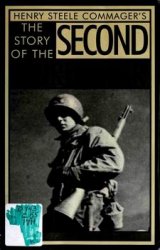Liberty—Equality—Fraternity! Those inspiring words promised for many a continuation of the revolutionary fervor that had sprung up in America decades earlier. Although the American Revolution had yet to demonstrate its staying power, people saw in it the promise of the future, and in 1789 that future seemed to be emerging among the French people. Instead, the French Revolution, while it did indeed reform many aspects of French life, evolved into a spectacle of unspeakable horrors, as thousands of people were executed for political reasons, and violence swept across France and spilled out across the rest of Europe. For twenty-five years, the events of the French Revolution and Empire—the Napoleonic Era-dominated not only Europe but the rest of the Western world.
As noted above, it is fortunate that America got its Constitution written and ratified before the French Revolution got into high gear. Many saw what happened in France during the terror—and under Napoleon—as the inevitable result of an excess of democracy: a descent into mob rule, which in turn would lead to a more autocratic government. Such attitudes would inevitably have affected the formation of the United States had we not completed our Constitution on the very eve of the outbreak in France.
Many seeds sown in America were harvested in France: the French were tuned in to what America had done; many veterans of American campaigns participated in the French Revolution, including the Marquis de Lafayette. But the two revolutions had very different outcomes. Washington was no Napoleon-Napoleon was no Washington. Yet the two great events of the late 1700s are inextricably connected. With Thomas Jefferson in Paris as America's ambassador to France, leaders of the French Revolution naturally looked to him and to the example of the United States for inspiration.
Like Great Britain in the 1760s, France found itself in debt following its wars, including support of America during the Revolution. In 1789, in order to address the financial problems of the nation, King Louis XVI convened the Estates General, a gathering of leaders of the French Estates: the First Estate (the Church), the Second Estate (the Nobility), and the Third Estate (the middle class and peasants, or Commons.) With republican fervor in the air, the Commons decided to proceed independently, but Louis closed the assembly hall, so the Third Estate retired to a tennis court, where they took an oath not to adjourn until France had adopted a constitution. Joined by members of the clergy and nobility, the assembly designated itself the National Constituent Assembly.
As revolutionary feelings continued to mount, violence broke out, and reform-minded revolutionaries stormed the Bastille prison on July 14, 1789. Over the next months new constitutions were written, new governments installed, and eventually King Louis and his wife, Marie Antoinette, attempted to flee Paris in the face of the angry mobs protesting harsh conditions. The royal couple were captured, brought back to Paris, and eventually executed. Not long after, the Revolution degenerated into what was known as the Reign of Terror as thousands of Frenchmen were executed on the guillotine for political reasons.
The fury of the French Revolution was seen as a threat to the neighboring monarchies, and in 1792 the wars of the French Revolution erupted. By 1799, as a series of governments had come and gone, Napoleon Bonaparte, the successful general, having put down riots in Paris, proclaimed the consulate that led to his becoming dictator and then emperor in 1804.
Over the course of the next decade, Napoleon fought against every major power in Europe with spectacular success. In 1812, however, he made the fateful error of invading Russia, where he saw an army of six hundred thousand reduced to tatters. Removed from power and exiled, he staged a comeback but was finally defeated by the Duke of Wellington at Waterloo at 1815.
As a result of the wars of the French Revolution and Empire, much of American public life was dominated by the turmoil in Europe. As a neutral nation, the United States sought to trade to its advantage, but often found that the warring powers made that extremely difficult. Presidents Washington, Adams, Jefferson, and Madison all had to deal with issues arising from the French Revolution and Empire.




 World History
World History









